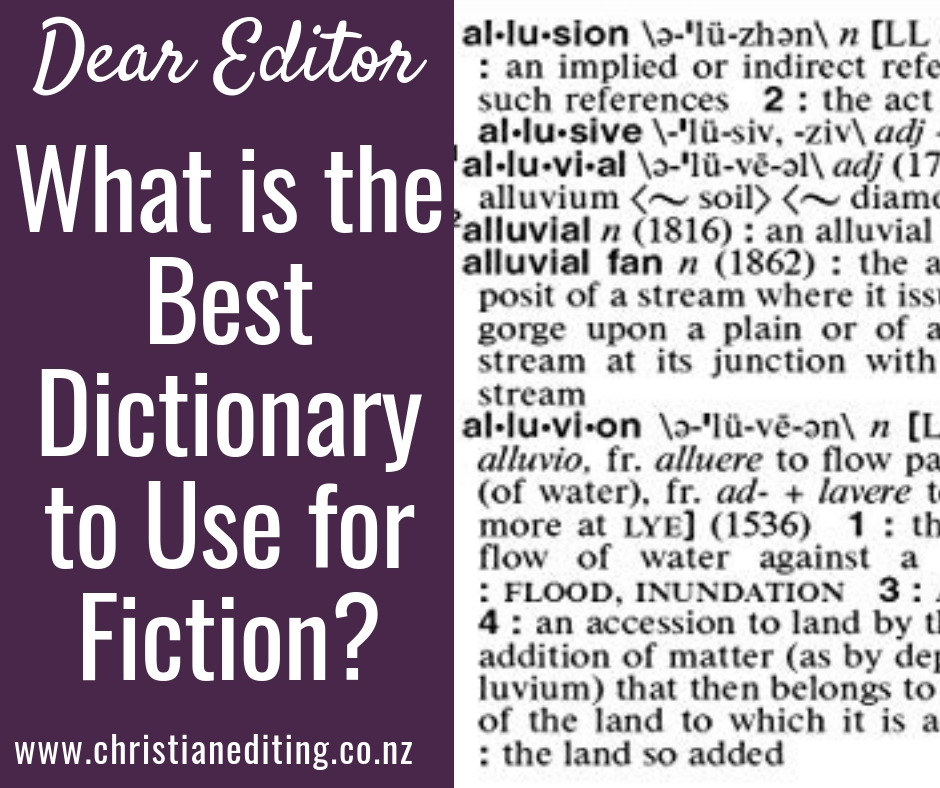One of the most important rules of editing is that a document needs to have correct and consistent spelling, grammar, and punctuation. How do we ensure correct and consistent spelling? We check in the dictionary.
But which is the best dictionary to use for fiction?
First, you can’t rely on the dictionary in Word. Or Grammarly. Or any other online software. Why not? Because each dictionary is different, and publishers will each have a standard dictionary they use. This will often be the dictionary recommended by their preferred style guide.
The standard style guide for fiction published in the United States of America is the 17th edition of the Chicago Manual of Style (CMOS). CMOS recommends the 11th edition of Merriam-Webster’s Collegiate Dictionary (MW).
Merriam-Webster regularly add new words to the online version of the dictionary, which means even the new 1 August 2019 print edition won’t be current for long.
The online edition will always be more current because it can be updated quickly and at almost no cost.
My print edition of Merriam-Webster’s was printed in 2014, which means it’s time to upgrade to the new 2020 edition (and yes, I’m fully aware it’s still 2019 as I write this). Note that these are both the 11th edition, despite the difference in printing date, and the inclusion of words such as emoji and clickbait in the 2020 edition.
This is further complicated by the fact there are multiple versions of Merriam-Webster’s, including:
- The Unabridged version, which includes 470,000 words (available online via subscription)
- The Collegiate version, also available online via subscription.
- The print Collegiate version, which includes 225,000 definitions.
- The free online version.
- The free and paid Android and iPhone app versions based on the online Collegiate dictionary (with the main difference being the lack of advertisements in the paid version).
Some words can be found in the app version, but not in the online Collegiate or Unabridged versions. (Apparently the Unabridged edition doesn’t include All The Words). Words marked “new” in the Unabridged might not be in other versions until the next scheduled update. Print versions obviously lag online versions.
Merriam-Websters say the subscription-based Collegiate version is the most up-to-date version available.
Our Collegiate Dictionary database on our subscription Merriam-Webster Unabridged site (unabridged.merriam-webster.com) is the most up-to-date version of Merriam-Webster’s Collegiate Dictionary, Eleventh Edition. The online Collegiate is usually updated a few times a year.
Our free dictionary on Merriam-Webster.com was originally based on the Collegiate, but the two are no longer the same.
But which is the best dictionary to use for fiction?
Merriam-Webster recommend publishing professionals use the online version of the Collegiate Dictionary. You can find this on the Merriam-Webster Unabridged site (i.e. the paid subscription version).
If you’re writing in US English, then you may wish to subscribe to the online Collegiate version, or you may be happy using the website or hardcover versions. However, it’s worth asking your editor which version they are using so you know which is more likely to be current and correct.


